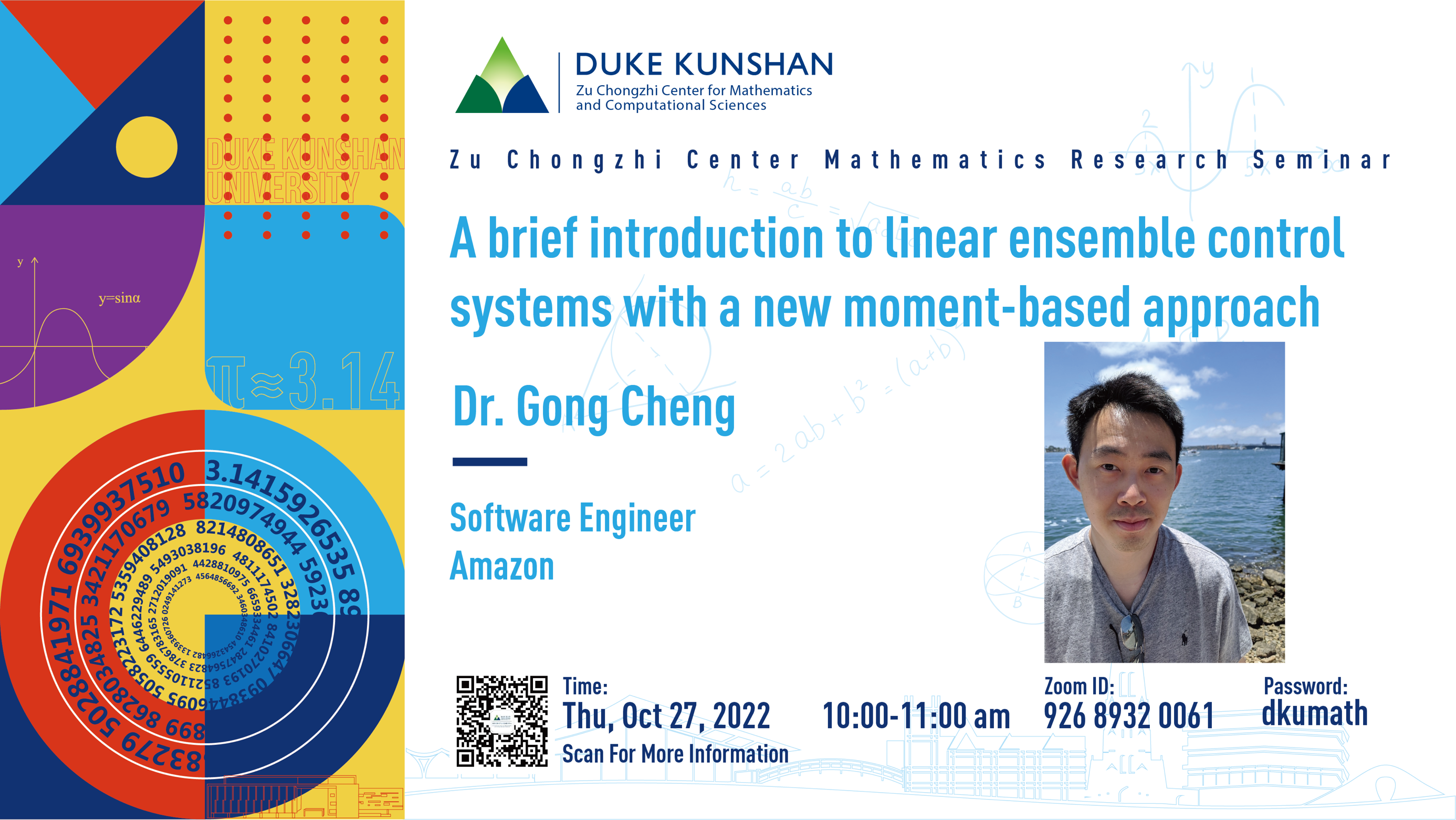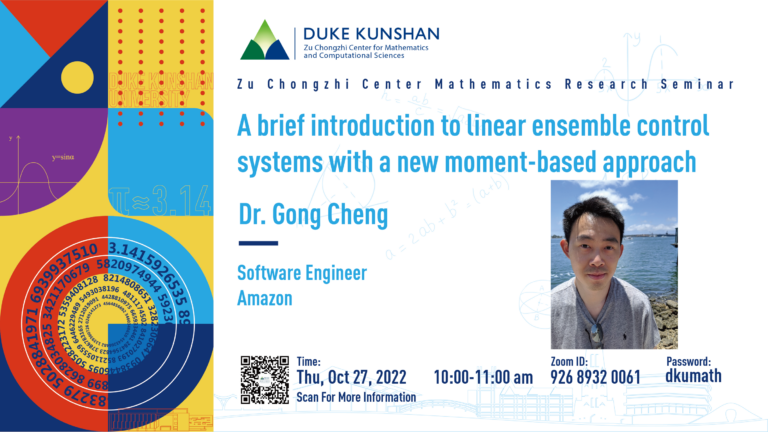Start
End
Location
Type
Share
Event details
Zu Chongzhi Center Mathematics Research Seminar
Date and Time (China standard time): Thursday, October 27, 10:00-11:00am
Zoom ID: 926 8932 0061
Passcode: dkumath
Title: A brief introduction to linear ensemble control systems with a new moment-based approach
Speaker: Gong Cheng
Bio: Gong Cheng received his BS degree in Zhejiang University, China, in 2012 and his PhD degree in Mathematics from Washington University in St. Louis in 2018. He was a Postdoctoral Research Associate in the Department of Electrical and Systems Engineering at Washington University from 2018 to 2021. He is now a software engineer at Amazon. His research interests are in the areas of differential geometry, geometric control, and systems science.
Abstract: The theory of ensemble control studies the problem of simultaneously steering a large population of systems with a finite number of control inputs. Each individual system in the ensemble may be structurally identical, but varies in its tuning parameter. The framework of ensemble control has many applications: it can be used to model, for example, spin dynamics that are controlled by a magnetic field, micro-robots under model perturbation, and a population of neurons in the treatment of neurological disorders. The fundamental difficulty in these applications is that control and observation are only available at the population level, i.e., through broadcasting an identical control signal to all subsystems, and through receiving aggregated measurements of systems in the population. This, in particular, poses a dilemma in the numerical implementation of ensemble control, since the exact state of each individual subsystem is generally unknown, while the aggregated measurements mathematically depend on the states of subsystems. In this talk, I will introduce my recent work on the analysis and control design of linear ensemble systems. This work is in collaboration with Dr. Jr-Shin Li and Xin Ning in Washington University in St. Louis.



